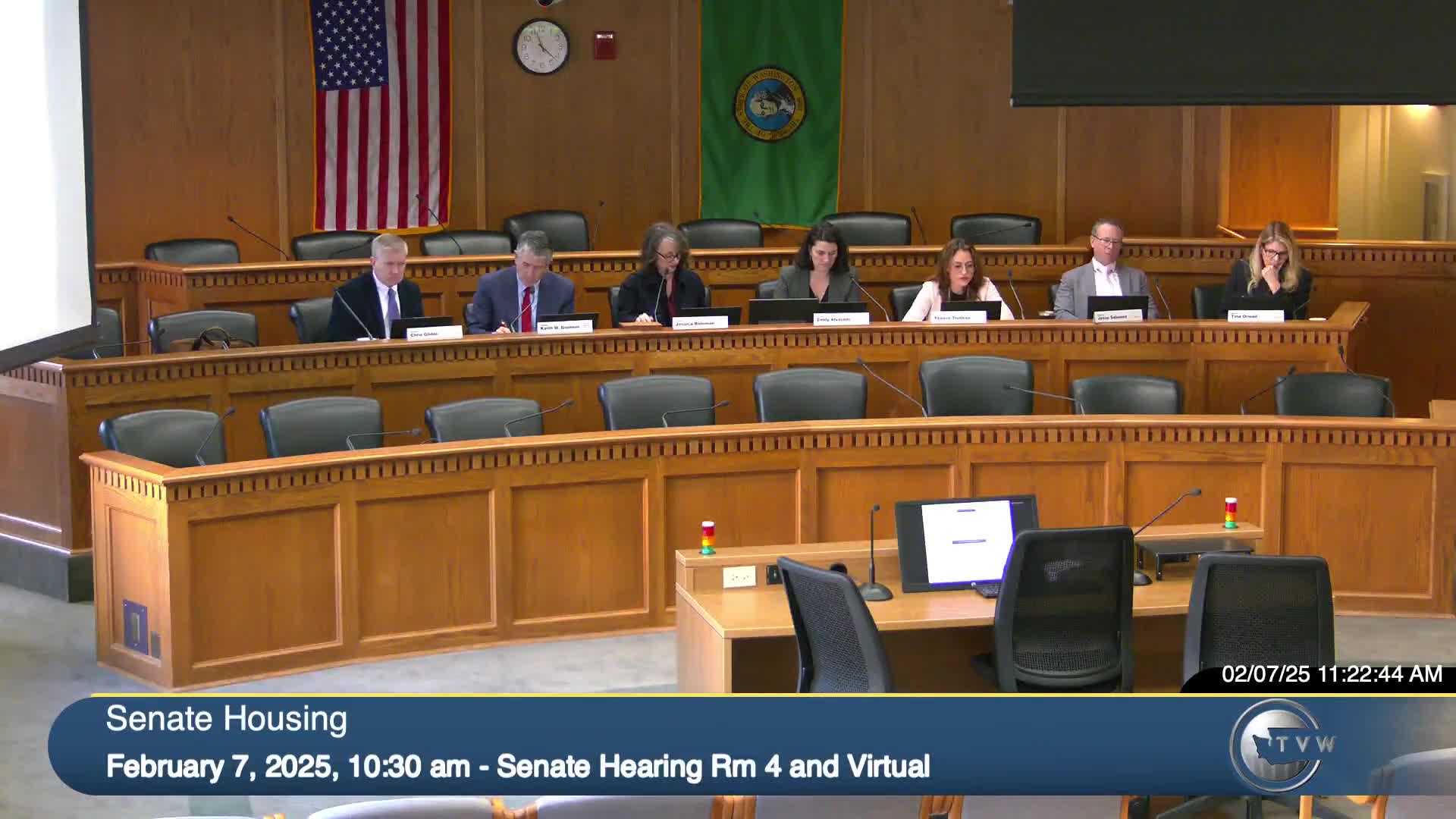Senate Bill 5591 would let cities/counties create sales-tax remittance program to support affordable housing; broad support from providers
Get AI-powered insights, summaries, and transcripts
Subscribe
Summary
Senate Bill 5591 would permit local opt-in sales-and-use tax remittance programs where half of the local sales tax remitted on qualifying projects would reimburse eligible developers and half would stay with the jurisdiction for affordable housing uses; affordable-housing developers and local governments broadly supported the concept.
Senate Bill 5591 would authorize a city or county to establish a sales-and-use tax remittance program to support eligible affordable housing development. Under the bill, an eligible organization (including nonprofit and for-profit developers, public housing authorities, or entities designated under Housing Finance Commission rules) could receive 50% of the sales and use tax imposed by the participating local jurisdiction, subject to qualifying project requirements (including commitments that at least 50% of units be rent- or sale-restricted to low-income households for at least 40 years). The remaining 50% of state sales tax affected by the remittance would be distributed back to the participating jurisdiction to be used for affordable housing acquisition, construction, operations, or behavioral health supports tied to housing.
Committee staff summarized the program’s mechanics, documentation requirements, and fiscal estimates: the Department of Revenue estimated administration costs of about $1 million and the bill’s revenue impact included a projected $7 million decrease in state revenues beginning in the 2027–29 biennium. The Joint Legislative Audit & Review Committee (JLARC) would be required to evaluate the program’s effectiveness and recommend repeal if the program did not increase the number of households housed by Dec. 31, 2033.
The bill drew broad support from counties, cities, housing authorities, Habitat affiliates and nonprofit developers, and the governor’s office. Proponents said the remittance would reduce construction costs for affordable projects, help mix funding streams, and provide jurisdictions with a steady local resource to pursue more projects. Developers, including Habitat affiliates, reported high sales-tax burdens per unit (testimony cited $34,000–$44,000 in sales tax per home for one Habitat affiliate) and said recovering a share of those costs would materially advance projects.
Supporters included the Washington State Association of Counties, Association of Washington Cities, governor’s housing advisor, multiple Habitat affiliates, local housing authorities, and nonprofit developers. Testimony emphasized the bill’s opt-in structure, ability to be stacked with other incentives (such as multifamily tax exemptions), and the potential to accelerate projects currently stalled for lack of financing. At the close of public testimony the vice chair reported 42 pro sign-ins, three con, and two other.
